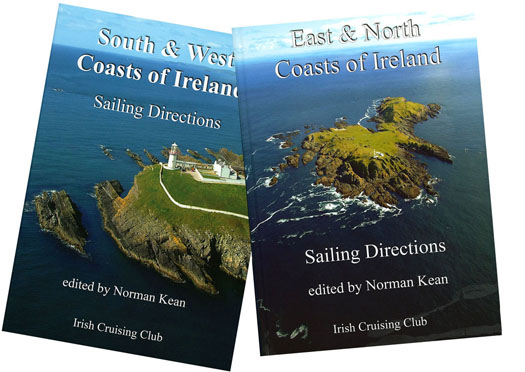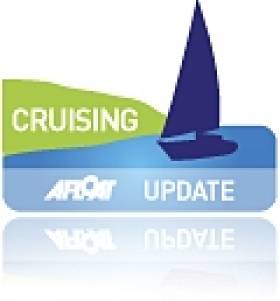Displaying items by tag: Directions
2011 Irish Coast Sailing Directions Published
The Irish Cruising Club's acclaimed Sailing Directions, in two volumes, offer comprehensive coverage of the entire coast of Ireland, and their price has recently been reduced by £10.00 to £27.50 each (€32.50).
These are the only cruising guides for the Irish coast to be frequently and comprehensively updated, with corrections available free at www.irishcruisingclub.com.
The 310 page South and West volume was reviewed in Cruising magazine, Sept 2010: "If you are intending to cruise these coasts, or even if you are only thinking of doing so, it is essential. As Sailing Directions they are well-nigh perfect."
Written, edited, designed and printed on the island of Ireland, these handsome hardback books are carried as an aid to navigation and pilotage by the Irish Naval Service, the Irish Coast Guard and the Commissioners of Irish Lights, and they are used as a reference source by the UK Hydrographic Office.

ICC SDs are available from chandlers and booksellers, and are distributed in Great Britain and the rest of the world by Imray, and in Ireland by Todd Chart Services. East and North Coasts Directions ISBN 978 0 9558 199 1 9; South and West Coasts Directions ISBN 978 0 9558 199 2 6.
























































